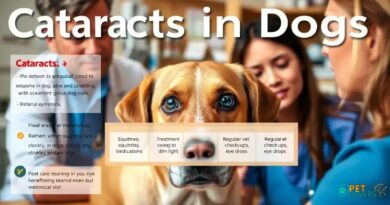What is Nutrição adequada
What is Nutrição adequada for Dogs?
Nutrição adequada, or proper nutrition, is essential for the overall health and well-being of dogs. It encompasses a balanced diet that provides all the necessary nutrients, vitamins, and minerals required for optimal growth, energy, and longevity. Understanding what constitutes adequate nutrition for dogs is crucial for pet owners who want to ensure their furry companions lead healthy lives.
The Importance of Balanced Diet
A balanced diet for dogs includes a mix of proteins, carbohydrates, fats, vitamins, and minerals. Each of these components plays a vital role in maintaining health. Proteins are essential for muscle development and repair, while carbohydrates provide energy. Fats are crucial for healthy skin and coat, and vitamins and minerals support various bodily functions, including immune response and bone health.
Understanding Dog Food Labels
When selecting dog food, it is important to read and understand the labels. The ingredients list should feature high-quality protein sources, such as chicken, beef, or fish, as the first ingredient. Additionally, look for whole grains or vegetables as sources of carbohydrates. Avoid foods with excessive fillers, artificial preservatives, and by-products, as these can detract from the nutritional value.
Life Stage Nutrition
Nutrição adequada varies depending on a dog’s life stage. Puppies require a diet rich in calories and nutrients to support their rapid growth and development. Adult dogs need a balanced diet to maintain their health, while senior dogs may benefit from lower-calorie diets that are easier to digest and support joint health. Tailoring nutrition to a dog’s life stage is key to promoting their overall well-being.
Special Dietary Needs
Some dogs may have special dietary needs due to health conditions or allergies. For instance, dogs with food allergies may require hypoallergenic diets, while those with obesity may need weight management formulas. Consulting with a veterinarian can help determine the best dietary approach for dogs with specific health concerns, ensuring they receive adequate nutrition without compromising their health.
Homemade vs. Commercial Dog Food
Pet owners often debate between homemade and commercial dog food. While homemade diets can be tailored to meet specific nutritional needs, they require careful planning to ensure they are balanced and complete. On the other hand, commercial dog foods are formulated to meet established nutritional standards, making them a convenient option for many pet owners. Understanding the pros and cons of each can help in making informed decisions about a dog’s diet.
The Role of Supplements
In some cases, supplements may be necessary to ensure that dogs receive adequate nutrition. Common supplements include omega-3 fatty acids for skin and coat health, glucosamine for joint support, and probiotics for digestive health. However, it is important to consult with a veterinarian before adding any supplements to a dog’s diet, as excessive supplementation can lead to health issues.
Hydration and Its Importance
Nutrição adequada also includes proper hydration. Fresh, clean water should always be available for dogs, as hydration is crucial for digestion, nutrient absorption, and overall health. Dehydration can lead to serious health problems, so pet owners should monitor their dog’s water intake and encourage drinking, especially during hot weather or after exercise.
Monitoring Your Dog’s Health
Regular veterinary check-ups are essential for monitoring a dog’s health and nutritional needs. Vets can assess a dog’s weight, body condition, and overall health, providing recommendations for dietary adjustments if necessary. Keeping an eye on changes in appetite, weight, and energy levels can also help pet owners identify potential nutritional deficiencies or health issues early on.



